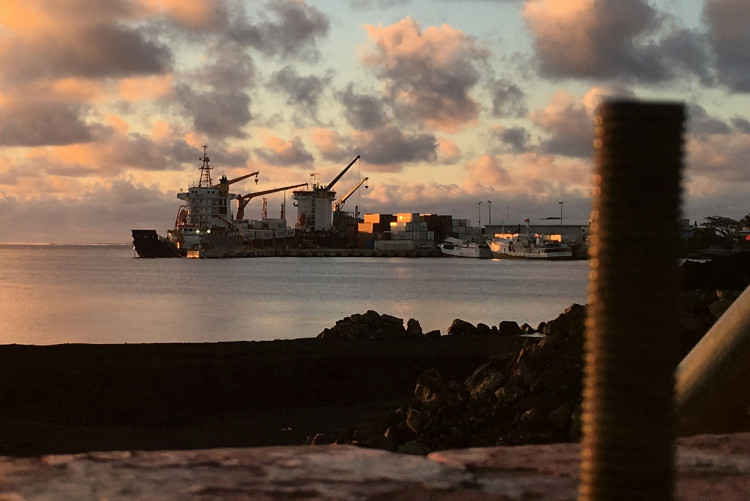Samoa's long-serving leader Tuilaepa Sailele Malielegaoi promises to complete a planned China-funded port for a third of its originally proposed cost. Tuilaepa said the port would be completed for just $100 million instead of $300 million.
The commitment is part of Tuilaepa's bid to stay in power despite losing a parliamentary majority in the nation's last elections. The Asian Development Bank previously deemed the port project as not economically viable after it estimated that it would cost more than $300 million.
Tuilaepa disagreed and told parliament the project could be completed for just $96.9 million. He said a reworked version of the "China-funded project" would have the same positive economic effect.
Tuilaepa said the port would generate much-need jobs and boost the nation's trade and tourism sectors. He said the port in Vaiusu just west of capital Apia would complement the main port.
China's foreign ministry said Thursday it is conducting a feasibility study of the project at the request of Samoa.
"The cooperation is based on mutual respect and equal consultation, and the purpose is to improve Samoa's infrastructure, promote local economic development and create jobs," foreign ministry representatives said.
In 2015, the ADB conducted a study on the project. The bank concluded that the project was "not economically and financially viable." The bank instead recommended that the nation push forward with upgrading its existing Apia port, which was constructed with aid from Japan.
Opposition leader Fiame Naomi Mataafa, who was sworn in as the nation's prime minister at an ad hoc ceremony outside the statehouse last month, is committed to scrapping the plan. Mataafa said the project was too "excessive" for the country, which is already heavily indebted to China.
Tuilaepa did not disclose any further details of the revised project plan, including which contractors may be involved. Opposition leaders have criticized Tuilaepa's proposal, questioning how such a project could be completed with just a third of its original cost.
Tuilaepa is a long-term proponent of further fostering Chinese relations. China has for years been asserting its influence in the Pacific, which has raised some concerns in the west - particularly from the U.S. and its allies.






